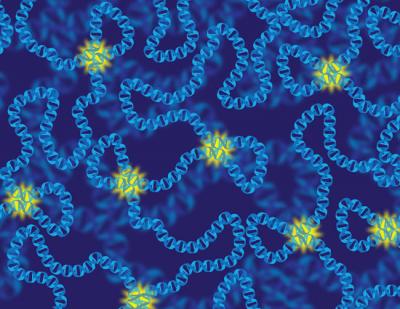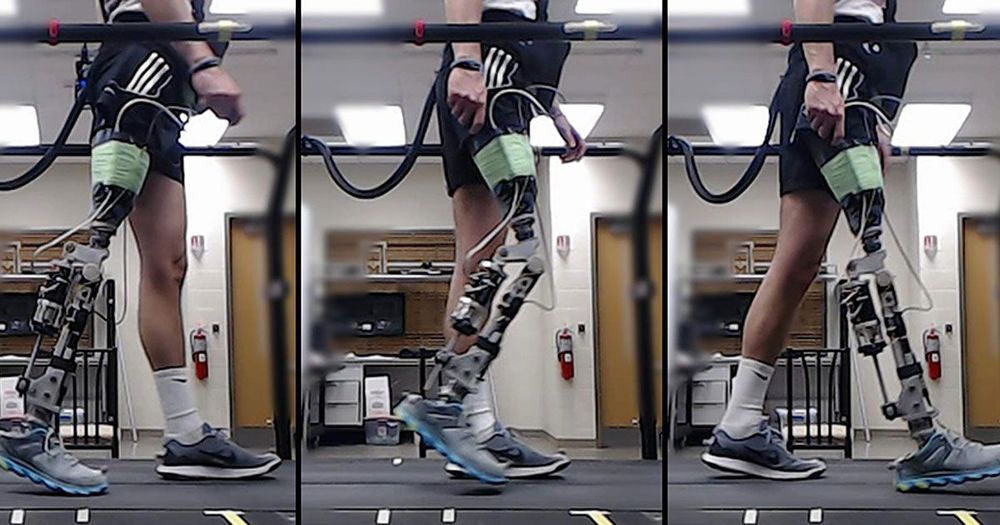EPFL scientists have discovered how a mutated gene can affect the three-dimensional interactions of genes in the cell, leading to various forms of cancer.



Attitudes about life extension have significantly changed within the last decade.
While medical schools have had the idea that aging should be brought under medical control for over a century, the explicit desire to greatly extend one’s life remained rare – until very recently. A new study by YouGov, a market intelligence company that researches multiple topics, found that, today, one in five Americans agrees with the statement “I want to live forever.” Is this the result of some sort of bias, or does it mean that we are reaching a turning point, after which society will start boldly and unambiguously clamoring for the cure for aging?
The desire for a long life
The wish to remain healthy and young and live significantly longer has accompanied humanity since its dawn. The most ancient myths and the very first pieces of literature, such as the Epic of Gilgamesh, tried to explain human aging and mortality, and they pictured heroes who pursued ways to live indefinitely or to save their loved ones. These early motivations are woven into modern religions, and they eventually caused life and health to be considered universal human rights that have to be valued and protected.

#OpenAccess #FullArticle The results of a new clinical trial have shown the safety and efficacy of the interoperable Artificial Pancreas System smartphone app (iAPS), which can interface wirelessly with leading continuous glucose monitors (CGM), insulin pump devices, and decision-making algorithms. The clinical trial and the app, which runs on an unlocked smartphone, are described in an article published in Diabetes Technology & Therapeutics (DTT), a peer-reviewed journal from Mary Ann Liebert, Inc., publishers.
Diabetes Technology & TherapeuticsVol. 21, No. 1Original ArticlesFree AccessSunil Deshpande,…
Paralyzed individuals can now operate tablets using brain waves.

A movie montage for modern artificial intelligence might show a computer playing millions of games of chess or Go against itself to learn how to win. Now, researchers are exploring how the reinforcement learning technique that helped DeepMind’s AlphaZero conquer chess and Go could tackle an even more complex task—training a robotic knee to help amputees walk smoothly.
Computer algorithms help prosthetics wearers walk within minutes rather than requiring hours of training.

CRISPR/Cas9 is a form of genetic editing that holds a lot of promise, such as the killing of cancer cells, but also comes with some hefty warnings, such as that it may cause DNA damage. So far, scientists have been using CRISPR/Cas9 in a variety of plants and animals to edit genetic information, including attempts to practice what is called ‘active genetics’.
This last approach is an attempt to edit the genome that controls which of the two copies of a gene is passed to the next generation. But the technique is complicated and rife with obstacles so thus far been used only on insects. Not anymore!
A team of biologists has now achieved the world’s first CRISPR/Cas9-based approach to control genetic inheritance in a mammal.
Researchers have achieved a new kind of chimeric first, producing sheep-human hybrid embryos that could one day represent the future of organ donation – by using body parts grown inside unnatural, engineered animals. Scientists have created the first interspecies sheep-human chimera, introducing human stem cells into sheep embryos, resulting in a hybrid creature that’s more than 99 percent sheep – but also a tiny, little bit like you and me.
Admittedly, the human portion of the embryos created in the experiment – before they were destroyed after 28 days – is exceedingly small, but the fact it exists at all is what generates considerable controversy in this field of research.


An artificial intelligence solution (AI) can accurately identify precancerous changes that could require medical attention in images from a woman’s cervix. Researchers from the National Institutes of Health and Global Good developed the computer algorithm, which is called automated visual evaluation.
Researchers created the algorithm by using more than 60,000 cervical images from a National Cancer Institute (NCI) archive of photos collected during a cervical cancer screening study that was carried out in Costa Rica in the 1990s.
More than 9,400 women participated in that population study, with follow up that lasted up to 18 years. Because of the prospective nature of the study, the researchers said that they gained nearly complete information on which cervical changes became pre-cancers and which did not.